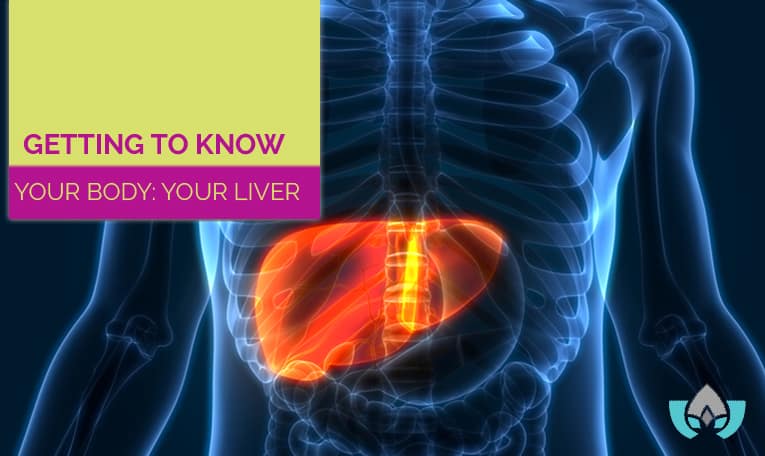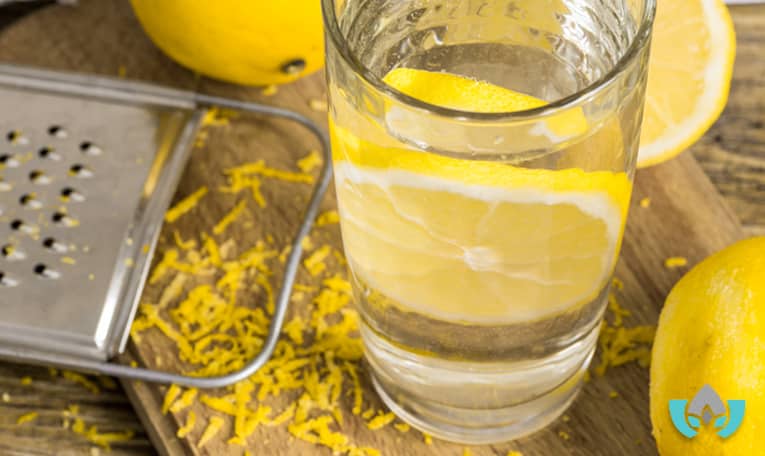
Let’s talk about your liver.
Football-shaped, it is the largest internal organ we have, weighing on average three pounds; it occupies a central location in our abdomens.
It plays a role in a number of different metabolic processes, including detoxifying your bloodstream.
As a result, a naturopathic detoxification approach always includes liver support.
Let’s take a closer look at this wonderful organ and what it does.
What Does Your Liver Do?
Not to play favourites, but the liver is truly one of the most incredible, hard-working organs in the human body.
It is composed of two parts, called lobes, and each of those is sectioned into eight different segments.
The liver protects your gallbladder, spleen, and pancreas by being positioned between them and the ribcage.
It is responsible for many of our metabolic processes, including the breaking down of food into different nutrients, converting glucose to glycogen (which is absorbed into the cells for later release) and detoxifying the bloodstream.
Interestingly, it’s considered a part of your body’s endocrine system – along with your thyroid, kidneys, pituitary gland, hypothalamus, pineal gland, sex organs, adrenal glands, pancreas, and others.
But it also has exocrine functions as well – that is, functions outside of the secretion of hormones.
The liver can hold up to 13% of the body’s blood supply at any given time, so its importance can’t be overstated.
Your blood is delivered to your liver by a vein, and once there, the liver cells, (called hepatocytes), sort,and filter it.
During that process, they determine what should be eliminated, what should be stored for future use, which nutrients should be used right away, and which should go back into the blood.
Like many superheroes, livers also can regenerate themselves.
After an injury or a surgery, it can often grow back to its original size.
The leftover cells in the liver enlarge themselves until they can multiply on their own.
Livers have been observed doing this after repeated injury.
Common Liver Diseases
Like any organ, your liver can be subject to disease.
Here are some of the more common ones.
1. Hepatitis A
There are several types of hepatitis, which is a viral infection that enlarges the liver.
An enlarged liver can cause jaundice, digestive disorders, pain after eating, and more.
Hepatitis A is prevalent in countries with unstable access to clean drinking water and with poor sanitation.
Most often, people can recover from hepatitis A without any lasting complications or liver failure.
2. Hepatitis B
This type of hepatitis, while mostly contracted through sexual contact, can also be passed along through sharing, or getting stuck by, an infected needle.
The younger a person is when they get infected, the higher the chance of long-term, chronic symptoms.
Some of the complications of hepatitis B can be cancer, or liver failure.
It can be considered the most severe of the hepatitis strains, but there is a preventative vaccine.
3. Hepatitis C
Hepatitis C is blood-borne (transmitted through the blood), and mostly contracted via needle or blood transfusion, though it can also be sexually transmitted.
This viral strain can cause your liver to become inflamed, which is serious, because inflammation can obstruct the passage of bile.
Bile is the substance that breaks down the food we eat and is a key part of our regulatory systems.
If bile becomes clogged, we cannot digest properly, which will result in a loss of appetite, and pain when we try and eat.
Hepatitis C can also cause generalized liver damage, and failure, should it be left untreated.
4. Non-Alcoholic Fatty Liver Disease
Non-alcoholic steatohepatitis, or NASH, is characterized by scarring (fibrosis) on the liver tissue.
The fibrosis builds up in the liver and eventually causes the organ to “suffocate”.
It is differentiated from cirrhosis because it is not related to alcohol consumption.
It is often diagnosed in people who have type 2 diabetes and is more often related to poor nutrition, obesity, and other lifestyle factors.
5. Cirrhosis
Cirrhosis is often caused by the chronic, excessive consumption of alcohol.
However, it can also be caused by untreated viral infections, or genetic conditions such as Wilson’s disease.
Cirrhosis is characterized by the build-up of scar tissue and fibrosis in the liver.
It can be extremely painful and has visible symptoms: including jaundice, fluid build-up in the arms and legs, nausea, itchy skin, and skin that bruises or bleeds easily.
6. Autoimmune Hepatitis
Autoimmune disorders happen when the body begins to attack itself, destroying healthy tissue, and cells can’t regenerate fast enough.
If left untreated, autoimmune hepatitis can lead to cirrhosis, and other irreparable damage.
Naturopathic Solutions for Liver Health
There are so many things that each of us can do daily to help keep our livers healthy and unstressed.
Making sure certain foods are a regular part of our diets, keeping hydrated, regular visits to your naturopathic doctor for checkups: these are important things to regularly do to maintain our general health.
Let’s talk about some of the things we can do to support liver function.
1. Drink Coffee. (No, Really)
The caffeine aficionados among us will appreciate this.
Up to three cups of coffee a day has been shown to lower the rate of deaths among patients with chronic liver disease.
It can also reduce the risk of cirrhosis, liver damage, and certain types of liver cancer.
Coffee reduces inflammation and increases levels of antioxidants.
Antioxidants protect your cells from damage by free radicals by eliminating them.
If you prefer tea over coffee, green tea has a similar level of antioxidants as well.
We could be reaping these benefits because coffee lowers the levels of fat and collagen in our body, or because it has blood-thinning properties and can therefore help with circulation.
2. Drink Alcohol Responsibly
Alcohol can be particularly damaging to our livers because, as we’ve discussed, the liver is where our body breaks down and redistributes what we have ingested.
As our livers break down the alcohol we’ve consumed, it can release the chemicals that were used to brew the alcohol.
These chemicals can cause significant damage, but because our livers are so good at healing, the damage is often found in its late stages when it cannot be reversed.
Alcohol recommendations can vary depending on age, gender, and other factors, so consult your Mississauga naturopathic doctorto get an idea of your recommended daily intake.
3. Go Easy on the Medication
Everything that goes into the body eventually gets processed by the liver, and that includes the medication we take.
Acetaminophen is a major cause of liver damage, probably because it is in so many of the medications we take.
We can get into trouble if we combine taking, say, a dose of Tylenol along with an over the counter cough medicine, which also contains acetaminophen.
Therefore, it is recommended to read labels and keep our acetaminophen intake at around or under two grams a day.
Beyond acetaminophen, many NSAIDs (non steroidal anti inflammatory drug), such as ibuprofen or naproxen, can also cause significant harm if taken above recommended dosages, or for extended periods of time.
All this to say, please DO NOT stop taking your prescription medications based on what you read in this article.
If you have concerns about your liver and the medication you’re taking, book an appointment at the Mindful Healing Clinic and let’s chat.
4. Supplement with B Vitamins
B vitamins are important for optimal liver function.
They are cofactors, which means they help release the enzymes needed for digestion.
In particular, vitamin B12 is the only B complex vitamin that can be stored in your liver.
B vitamins can be found in a variety of food: dark, leafy green vegetables like kale, whole grains, and legumes like chickpeas or lentils.

5. Drink Lemon Water
Water keeps you hydrated, and lemon is a fundamental source of vitamin C.
Vitamin C is an antioxidant and helps protect your liver against the very toxins it processes.
Lemon also encourages the production of bile and helps with the liver’s enzyme function.
Book Your Appointment With The Mindful Healing Clinic Today
As humans, we cannot be healthy without the help of our liver.
While it is true that due to the nature of its work, it is more susceptible to infection and inflammation, it also usually responds quickly to diet or lifestyle changes.
Are you interested in learning more about how to support your liver?
If so, I’m Dr. Maria Cavallazzi, ND, and I can help.
Book your appointment with the Mindful Healing Clinictoday.
Until next time,
Dr. Maria Cavallazzi, N.D
Mindful Healing Naturopathic Clinic
Mississauga, ON L5M 1L7
(905) 819-8200
► https://g.page/MindfulClinicNaturopathic
Dr. Maria Cavallazzi is a medical doctor from Colombia where she practiced as a family physician for 8 years until she moved to Canada 16 years ago and became a naturopathic doctor in Mississauga.


